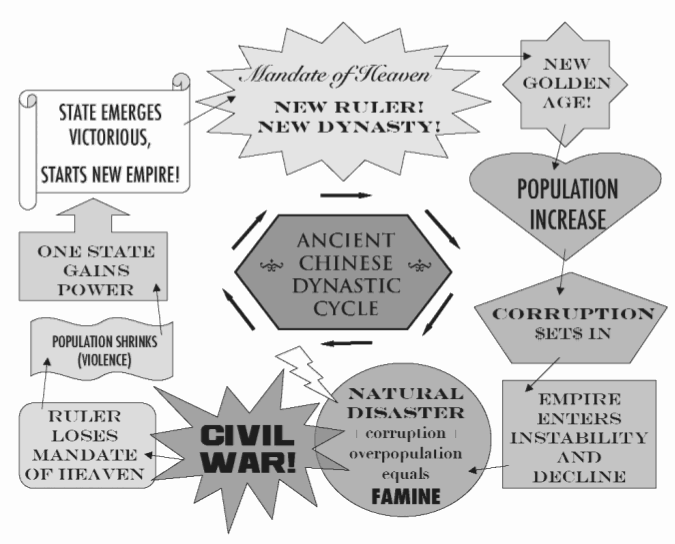Via the Dark Visitor, another headline blaring that Chinese hackers are on the verge of undermining all of Western civilization: EXCLUSIVE: Cyber-Hackers Break Into IMF Computer System. Anonymous IMF sources tell Fox reporter Richard Behar that vital computer systems were “attacked by unknown cyber-hackers” which is later translated as “spyware”. This could be anything from real spies doing keylogging to pop up ads for porn. The IMF denies anything happens, and then the article, for no apparent reason at all, suddenly goes on to say “The Pentagon claims the Chinese army has established units to develop viruses to attack enemy computer systems” and quotes John Tkacik, a neocon with deadly bowties, telling us everyone knows China is the biggest player in “cyber espionage”.
This is followed by Nick Day* of the private spy firm Diligence LLC telling us that this is all part of the global race for dwindling resources. “What the Chinese are particularly interested in at the IMF is what loans the IMF is likely to give to other countries… And if the IMF is not going to bail them out, or is going to bail them out at a rate which is fairly punitive, then the Chinese can go into those countries and say, “Don’t go to the IMF. Come to us. We’ll bail you out and we want exclusive deals over the next 20 years to all your mining concessions in your country, access to mineral wealth, access to oil'”.
This fits rather well with Behar’s previous effort at Fast Company on China’s vast appetite for Africa’s natural resources (and the West’s appetite as well). It’s a fairly good series, but has the same sort of melodramatic flair as the hacker series, and even worse begins with a map of Africa colored with the Chinese flag and a meditation on Behar’s parasitic infection, leading up to “During my recovery, I had time to dwell on parasites, how they invade and deplete their hosts, much as successive colonial powers have done over the centuries in places such as Africa. Anyone who thinks that kind of ravenous acquisition of resources is a thing of the past should take a close look at the suction China is applying in the sub-Sahara.” On the next page he tries to say the analogy is really humanity drying up Earth and it’s not a Yellow Peril, but it kinda looks like insincere CYA hedging. It’s a shame because there’s alot of good reporting otherwise.
Behar also reported previously on FoxNews World Bank Under Cyber Siege in ‘Unprecedented Crisis’, stating “at least six major intrusions — two of them using the same group of IP addresses originating from China — have been detected at the World Bank since the summer of 2007″. Credit where credit is due: Behar later points out that these “addresses can be spoofed” (and they’re in Macao) but then he goes and says “bank officials and its executive director for China clashed behind closed doors over whether or not China’s government is involved in the break-ins.” Clashed? Clashed, you say? Did sweet little Mrs. Zou Jiayi challenge the CIO to a duel with pistols?
Wait a minute…there’s a Chinese Ministry of Finance official is on the Board of Executive Directors of the World Bank. And there’s one over on the IMF, and they solely represent their country, an honor only bestowed on the U.S., U.K., Germany, France, Japan, Russia and Saudi Arabia. Why exactly would the Chinese government have to hack their way to details on planned bailouts? Wouldn’t they, yknow… be told?
The rest of the World Bank/IMF hacker saga is full of anonymous office gossip and tentatively connected dots. The rumor that Indian IT company Satyam is no longer contracted by the World Bank because of keylogging spyware apparently introduced by one of its employees is simply that: a rumor. The one former World Bank CIO was physically escorted from the building is probably not true, though there’s a good chance he was fired and barred from working there again.
Behar’s greatest chutzpah is when he literally calls rumors at the Bank about hacking being tied to sanctions against Chinese companies in the Philippines “water-cooler speculation”, and yet still puts it in his article. All this is linked together with bombastic verbs such as “blasted”, “plagued”, “tackle head on”, “lit a fire under”, and an endless litany of cyber attacks, cyber assaults, cyber hackers, cyber crime, cyber siege, etc. all that the Cybersecurity center.
I’ve written before about this style of writing and reporting about Chinese hackers. Now I know what to call it: Cyber Gossip.
ADDENDUM: To put it all another way, when we take out the gossip and action movie verbiage, what have we got? A monolithic global bureaucracy in which executives were partial to their friends companies and projects (That’s your cue Captain Renault) is hit by reasonably professional hackers (Gosh, how often does that happen?). I imagine most people at the World Bank call that “Monday”. Then analysts, journalists and aspiring future sleazy executives use it as an opportunity to advertise their expertise, write very exciting copy and maneuver against their office rivals. I imagine that’s called “Tuesday”.
———————————
* Nick Day once pretended to be “Hamilton, Nick Hamilton”, of the British Secret Service in order to steal confidential documents from KPMG for the major D.C. lobbying firm of Barbour, Griffiths and Rogers’, who hired Diligence on behalf of the Russian consortium Alfa Group. What a guy.
 I saw the new James Bond movie in China, where it’s been released a week or so earlier than the United States. The plot centers around a organization called Quantum (think SPECTRE of the old Bond) that engineers a military coup d’etat with CIA approval in exchange for a monopoly on local water management, while diverting water to underground aquifiers on property the new government agrees to give in payment. Once they have the monopoly, they intend to jack up local water rates on poor farmers.
I saw the new James Bond movie in China, where it’s been released a week or so earlier than the United States. The plot centers around a organization called Quantum (think SPECTRE of the old Bond) that engineers a military coup d’etat with CIA approval in exchange for a monopoly on local water management, while diverting water to underground aquifiers on property the new government agrees to give in payment. Once they have the monopoly, they intend to jack up local water rates on poor farmers.



